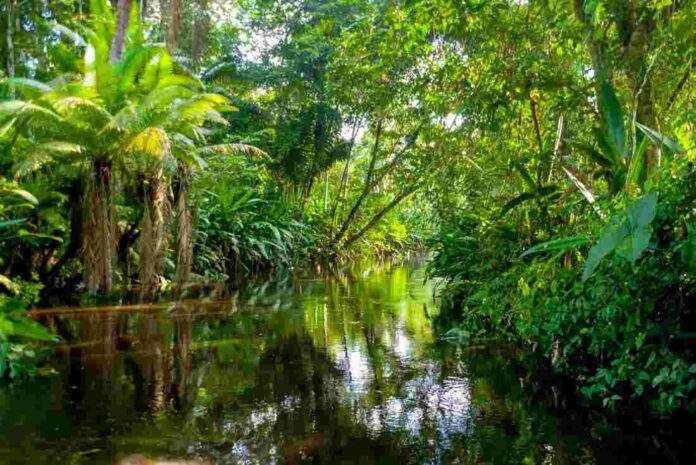In the heart of the lush Amazon rainforest, representatives from eight nations recently gathered in the vibrant Brazilian city of Belém for a pivotal summit. Their mission? To confront the looming threat of deforestation and its dire consequences for our planet. The stakes were high, as the Amazon rainforest is often referred to as the “lungs of the Earth,” playing a crucial role in mitigating climate change by absorbing vast amounts of carbon dioxide.
Yet, despite the urgency of the situation, the outcome of the two-day summit fell short of expectations, leaving many climate activists disheartened. A joint declaration emerged, forming an alliance to combat deforestation. However, it was a compromise that allowed each country to pursue its own conservation goals, lacking the decisive action many had hoped for.
The backdrop of this gathering was not one of incremental temperature increases but rather a planet grappling with soaring heat records and melting ice caps. Climate activists argued that the absence of concrete measures in the declaration was a missed opportunity to halt deforestation, a menace that contributes significantly to the unfolding climate crisis.
“Mere words are not enough,” expressed Márcio Astrini, a representative of the Climate Observatory group. In a world where daily temperature records are shattered and environmental upheaval is the new normal, the refusal to include an unequivocal commitment to zero deforestation felt like an inadequate response.
With around 60% of the Amazon located within Brazilian borders, the leadership role falls on Brazil’s President Luiz Inácio Lula da Silva, who had proposed a united goal to end deforestation by 2030. This ambitious target had garnered attention and hopes, only to be dashed as the summit concluded.
Amidst this apparent setback, there were glimmers of potential progress. An agreement among the eight nations to collaborate on curbing illegal activities in the Amazon emerged as a silver lining. Concrete plans were laid out for joint efforts in aerial surveillance and information exchange to combat illegal mining and logging, vital steps toward preserving this precious ecosystem.

Haug Larsen of the Rainforest Foundation Norway viewed this agreement as a “giant leap in the right direction,” emphasizing the importance of proper implementation.
President Lula’s opening speech underscored the urgency of action, with a plea for unified efforts in the face of unprecedented challenges. The path to a sustainable future, he stressed, lies in unity and collective resolve.
The Amazon rainforest’s fate hangs in the balance, teetering on the edge of a point of no return. The Belém declaration, as it came to be known, expressed the alliance’s aim to prevent this ecological disaster. It also laid out commitments to collaboration on diverse issues, from water management to sustainable development, binding the nations together in their pursuit of global climate goals.
Yet, even in the midst of this pact, differences emerged. Colombia’s President Gustavo Petro called for a universal ban on new oil exploration, a plea echoed by many concerned about the environmental ramifications of such activities. On the other hand, Brazil contemplated exploring new areas at the Amazon river’s mouth, a divergence that highlighted the complexity of the challenges at hand.
The summit’s significance extended beyond the immediate agreement. It provided a regional voice in the fight against climate change, acting as a prelude to the forthcoming 2025 UN Climate Change conference in the same city. The world’s attention is now drawn to Belém, as these nations strive to bridge gaps and pave the way for a sustainable future.
As the sun sets on the Amazon basin, its destiny hangs in the balance. The billions of trees that grace this verdant expanse hold within them the power to alter the course of our planet’s history. The global community watches with bated breath, hoping that the alliance formed in Belém will evolve into a resolute force for change, curbing deforestation and steering us away from the precipice of irreversible ecological damage.


